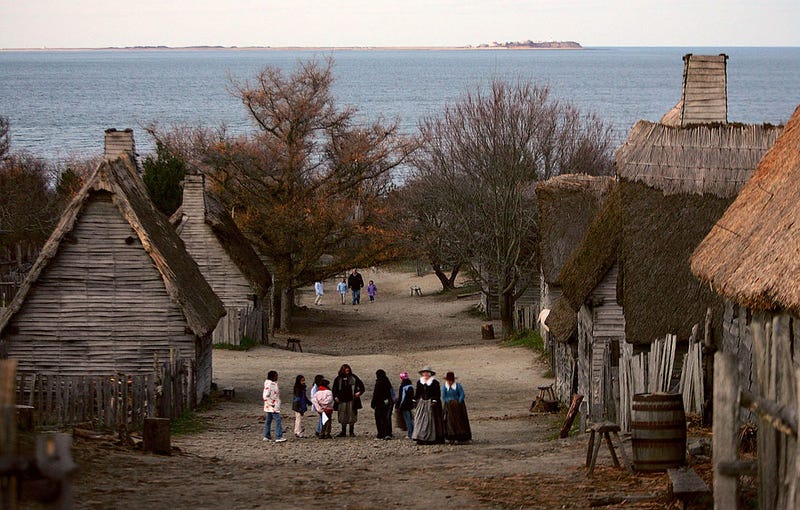
Native Americans in Massachusetts are calling for a boycott of a popular living history museum that has told the story of Pilgrims in Plymouth Colony and the Indigenous peoples of the Northeast for 75 years.
Members of the Wampanoag tribe and their supporters say Plimoth Patuxet Museums has failed to live up to its promise of creating a "bi-cultural museum" that equally tells the story of the European and Indigenous peoples that lived there, the Associated Press reported.
"We're saying don't patronize them, don't work over there," Camille Madison, a member of the Aquinnah Wampanoag Tribe on Martha’s Vineyard, told the AP. "We don't want to engage with them until they can find a way to respect Indigenous knowledge and experience."
The members are especially concerned about the museum's outdoor Wampanoag exhibit, designed to showcase authentic Indigenous farming, cooking, canoe building and other cultural practices. They say the exhibit is inadequately small, in need of repairs and staffed by workers who aren't from local tribes.
"For more than a decade now, the museum has systematically dismantled the outdoor exhibit," the Wampanoag Consulting Alliance said in a statement to the AP. "Many steps taken to provide equal representation to Wampanoag programming have been removed, and the physical exhibit is in deplorable condition. The result has been the virtually complete alienation of the Wampanoag communities."
The criticism comes two years after the museum, which was founded in 1947, changed its name from Plimoth Plantation to better reflect the Native American history that is part of its educational mission.
"They've changed the name but haven't changed the attitude," Paula Peters, a member of the Mashpee Wampanoag Tribe who worked at the museum for nearly 20 years, told the AP. "They've done nothing to ingratiate themselves with tribes. Every step they take is tone deaf."
A spokesperson for the museum denied the claims and said the facility has actually expanded its outdoor Wampanoag exhibit recently. In a statement to the AP, Rob Kluin said the museum has also raised more than $2 million towards a new Indigenous programs building and has "several initiatives in place" to recruit and retain staff from Native communities, though he did not provide specifics.
Kluin also noted that the museum recently hired a new director of its Algonquian Exhibits and Interpretation, Brad Lopes, who is a member of the Aquinnah Wampanoag Tribe and serves on his tribe's education committee.


